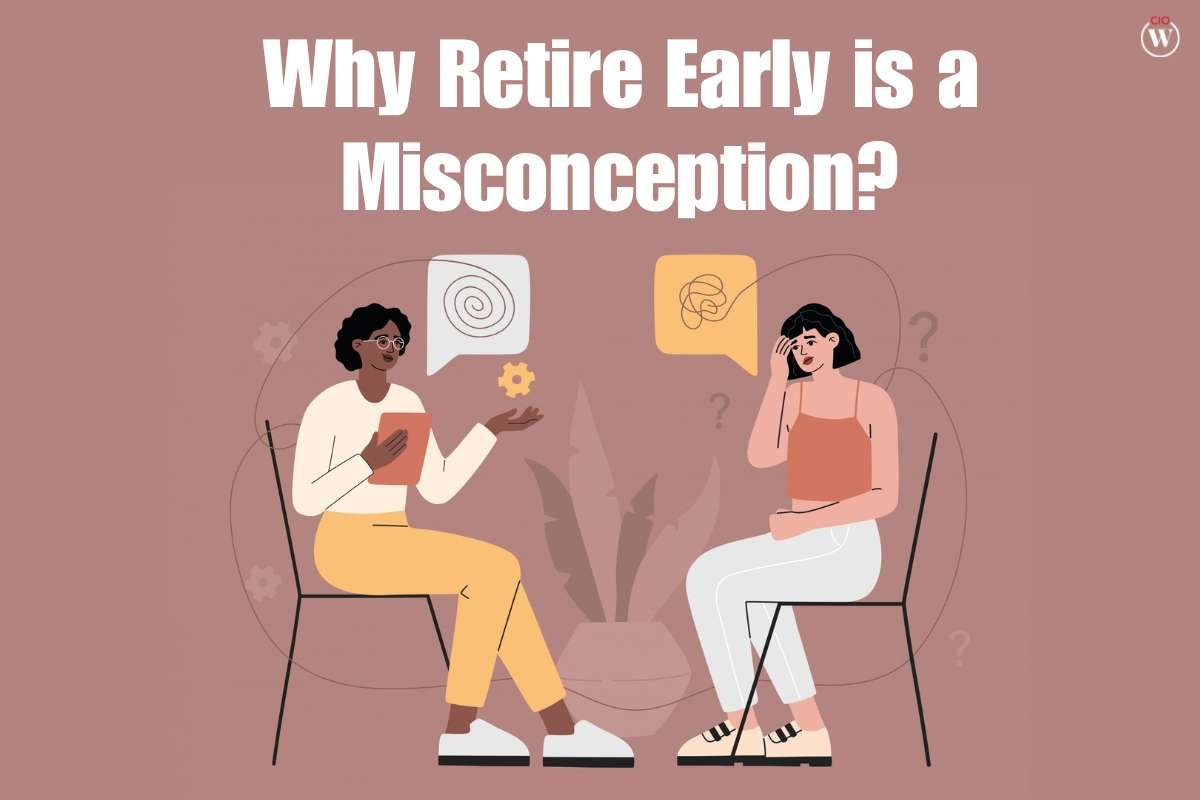Retiring early has become a popular goal for many people in recent years. The idea of leaving the workforce in one’s 30s, 40s, or even 50s to pursue other passions or live a more relaxed lifestyle is an enticing one. However, the concept of retiring early is a misconception that can be misleading and potentially harmful. In this article, we will explore why retiring early is a misconception and why it’s essential to think beyond the traditional concept of retirement.
What is Retirement?
Traditionally, retirement is the stage in life when a person leaves the workforce and begins to rely on savings, pensions, and other sources of income to support themselves. Retirement is often associated with the end of one’s working life and the beginning of a more relaxed and leisurely lifestyle.
Here is why retiring early is a misconception;
1. Insufficient Savings
One of the biggest reasons why retiring early is a misconception is that it requires a significant amount of savings to maintain a comfortable lifestyle. Many people underestimate how much money they need to retire early and may not have saved enough to support themselves for the rest of their lives. This can lead to financial struggles and a diminished quality of life later on.
Retiring early may seem like a great idea when someone is in their 20s or 30s, but it’s essential to consider the long-term financial implications of this decision. Without sufficient savings, early retirees may have to rely on Social Security benefits or other sources of income that may not be enough to support them adequately.
2. Healthcare Costs
Another factor to consider is healthcare costs. Retiring early means leaving behind employer-provided healthcare benefits, which can be a significant expense for many people. Healthcare costs are rising, and early retirees may not be prepared to handle the cost of medical care without employer-provided coverage.

Additionally, as people age, healthcare costs tend to increase, which can be especially challenging for early retirees who may not have anticipated these costs. This can quickly deplete savings and impact one’s ability to maintain a comfortable lifestyle.
3. Longer Life Expectancy
People are living longer than ever before, and this means that retirement may last for decades. Retiring early may seem like a good idea, but it’s important to consider how long retirement may last and how one will support themselves during this time.
Early retirees may have to rely on their savings for a more extended period than they initially anticipated, and this can be challenging if they did not save enough to support themselves for such an extended period. A longer retirement also means more time for unexpected expenses, such as healthcare costs or home repairs, which can quickly drain savings.
4. Social Isolation
Work provides more than just a paycheck; it also provides a sense of purpose, social interaction, and a routine. retiring early is a misconception that may mean leaving behind these essential aspects of life, leading to social isolation and a loss of purpose.
Many people who retire early find that they miss the structure and social interaction that work provided. This can lead to feelings of loneliness and depression, which can impact one’s overall quality of life.
5. Lack of Purpose
retiring early is a misconception that can also lead to a lack of purpose. Work provides a sense of accomplishment and fulfillment that may be challenging to replace. Without a sense of purpose, early retirees may struggle to find meaning in their lives and may feel unfulfilled.

It’s important to consider what one will do with their time in retirement and how they will find a sense of purpose and fulfillment. This may involve pursuing hobbies, volunteering, or working part-time, among other activities.
6. Alternatives to Traditional Retirement
Rather than thinking about retirement as a fixed endpoint, it’s essential to consider alternative approaches to retirement. Here are some ideas to consider:
7. Semi-Retirement
Rather than fully retiring, some people may choose to work part-time or in a less demanding job. This can provide a source of income while also allowing for more leisure time and flexibility.
8. Career Change

Another alternative to traditional retirement is a career change. This can involve pursuing a passion or starting a business. A career change can provide a sense of purpose and fulfillment while also generating income.
9. Financial Independence
Financial independence is another alternative to traditional retirement. This involves saving and investing enough money to cover living expenses without relying on a traditional job. Financial independence provides flexibility and freedom in how one spends their time and can allow for pursuing passions or hobbies.
10. Volunteering and Philanthropy
Volunteering and philanthropy can provide a sense of purpose and fulfillment in retirement. By giving back to the community, one can make a positive impact and find meaning in their lives.
BOTTOM LINE
Retiring early is a popular goal, but it’s essential to recognize that retiring early is a misconception that can be misleading and potentially harmful. Retiring early requires a significant amount of savings, and early retirees may not be prepared for the cost of healthcare or the length of retirement. Social isolation and a lack of purpose are also common challenges in retirement.
Rather than focusing on traditional retirement, it’s essential to consider alternative approaches to retirement, such as semi-retirement, career changes, financial independence, or volunteering and philanthropy. By thinking beyond the traditional concept of retirement, one can find a sense of purpose and fulfillment in their post-working years while also maintaining financial security and stability. It’s essential to plan for the long term and consider all aspects of retirement before making any decisions about leaving the workforce.









